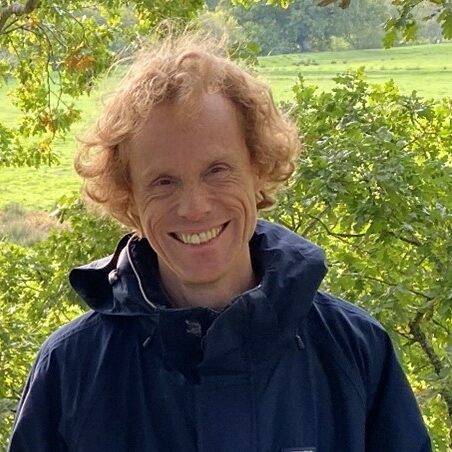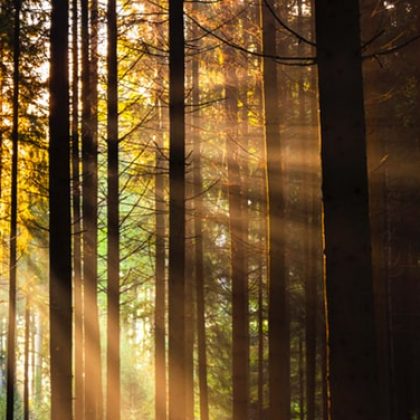From the Author: Lifescapes, with Professor Jeremy Burchardt

Jeremy Burchardt is Associate Professor in Rural History at the University of Reading. He is Principal Investigator of the Arts & Humanities Research Council research network ‘Changing Landscapes, Changing Lives’.
His book, Lifescapes The Experience of Landscape in Britain, 1870–1960, published by Cambridge University Press, draws on eight remarkable unpublished diaries to understand the relationship between individual lives and the landscape. Through comparative biography, Lifescape’s creates a fresh approach to landscape history. Highlighting family structures, relationships and the psychological dynamics they generate.
Written by Jeremy Burchardt
I’ve always loved the countryside. When I was a child we used to stay with friends on a farm in Leicestershire for a week or two every year. We fed the animals, watched the milking, collected eggs and went on long walks through the quiet fields.
It was a world away from the busy city where we lived and the social and academic pressures of school. We encountered wildlife we never saw at home – great flocks of peewits, wings flashing black and white, a weasel swimming a brook, badger cubs gambolling along a track. Crossing ploughed fields, we found devil’s toenails and ammonites, rusty horseshoes, broken china and potsherds. The part of Leicestershire where our friends lived had been a notable centre for ironstone quarrying and we followed the routes of disused railway lines that had served the quarries through overgrown cuttings and along embankments, often coming across old rails and wooden sleepers, and once even a small wagon half-buried in the earth.
Years later, having completed a PhD on the history of allotments, I was lucky enough to be offered a lectureship at the Rural History Centre in Reading. I hadn’t lost my childhood affinity for the countryside so this was truly landing on my feet. My new boss, the distinguished agricultural historian Ted Collins, urged me to widen my intellectual horizons, pointing me towards twentieth-century rural history, which at that time had received little scholarly attention. For a social historian like myself, one research question stood out above all others. How had the countryside, once regarded as a dull and impoverished backwater, become so popular both as a place to visit and, for those who could afford it, to live?
For a social historian like myself, one research question stood out above all others. How had the countryside, once regarded as a dull and impoverished backwater, become so popular both as a place to visit and, for those who could afford it, to live?

I wasn’t the first historian to notice the remarkable rise in the popularity of the countryside during the twentieth century. But most of what I read didn’t really seem to get to the nub of the matter. The few social historians who had written about the rise of rural leisure had taken an organisational and institutional approach, focusing on organisations such as the Ramblers Association and the Cyclists Touring Club. They had little to say about why people found the countryside attractive. The cultural history literature was equally unhelpful. There had been much attention to how the countryside had been represented in art and literature, often it was argued in an idealized and misleading way (the so-called ‘rural idyll’). Several historians had argued that, especially in the first half of the twentieth century, the countryside had become strongly associated with national identity. Insofar as any thought had been given to popular perceptions of the countryside, the assumption was that high cultural representations had simply ‘trickled down’ and been passively absorbed. Virtually no research had been undertaken on how anyone apart from a few well-known artists and writers had actually experienced landscape.
Conversely, the question that fascinated me was what happened when ordinary people were out and about in the countryside – on a walk, for example, or sitting on a bench looking at a view.
I wanted to understand landscape’s effect on people in as much detail and specificity as I could. What rewards did people obtain from spending time in rural landscapes and how did this fit into the wider pattern of their lives?
What made this so challenging but also so absorbing to research was the elusiveness of people’s responses to landscape. Most of the time we are unaware of the effect of our spatial environment on us (though we are always affected by it, in a range of ways). On the rare occasions that we do become fleetingly conscious of our responses and reactions, we are unlikely to articulate them to anyone, still less write them down. To use a rural metaphor, I was looking for a needle in a haystack.
The only solution to problems of this kind, for historians at least, is to work through large quantities of the richest and most revealing source material available. In my case, this turned out to mean long-run unpublished diaries. It proved very difficult to find suitable diaries and in the end I used eight of the nine I identified, rejecting the ninth because it was too similar in provenance to one of the others. However, once I began to read the diaries, they proved absolutely compelling. The depth and detail was remarkable and at times I almost felt I was living their experiences with the diarists.
It turned out that the diarists had been drawn to rural landscapes for reasons that were much more complex and varied than I had anticipated – reasons that lay hidden deep in their personal life stories.
These reasons had little to do either with the rural idyll or national identity: far more important were life situations and relationships, especially those experienced in childhood and youth.
This project has been the most rewarding of my professional life and I hope to share some of the fascination of the lives I’ve been privileged to study, and the vital roles landscape played in them, with you on 18th March in Cambridge.

The Cambridge Festival is an interdisciplinary festival held in the heart of Cambridge. Its aim is to illuminate a selection of some of the fantastic ideas and research that flows through Cambridge each year. Professor Burchardt will host an in-person event at the Cambridge Festival on Monday 18th March 2024. Book your free place.





